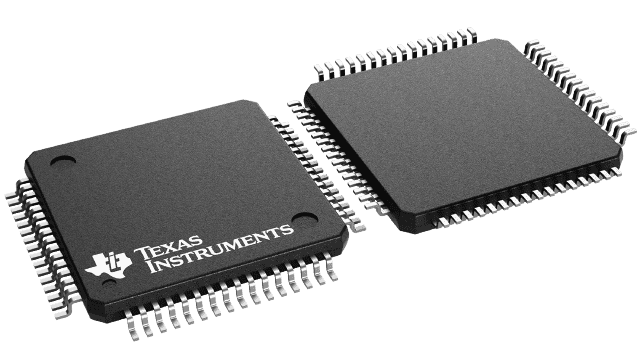| Resolution (Bits) | 24 |
| Number of input channels | 1 |
| Sample rate (Max) (kSPS) | 4000 |
| Interface type | Serial |
| Architecture | Delta-Sigma |
| Input type | Differential |
| Rating | Catalog |
| Reference mode | Ext |
| Input range (Max) (V) | 3.5 |
| Input range (Min) (V) | 0 |
| Operating temperature range (C) | -40 to 85 |
| Power consumption (Typ) (mW) | 575 |
| Analog voltage AVDD (Min) (V) | 4.75 |
| SNR (dB) | 107 |
| Analog voltage AVDD (Max) (V) | 5.25 |
| INL (Max) (+/-LSB) | 251.7 |
| Digital supply (Min) (V) | 2.85 |
| Digital supply (Max) (V) | 3.15 |
- AC Performance:
103dB of Dynamic Range at 4MSPS
111dB of Dynamic Range at 125kSPS
–107dB THD - DC Accuracy:
3ppm INL
4μV/°C Offset Drift
4ppm/°C Gain Drift - Programmable Digital Filter with User-Selectable Path:
- Low-Latency: Completely settles in 2.65μs
- Wide-Bandwidth: 1.7MHz BW with flat passband
- Flexible Read-Only Serial Interface:
- Standard CMOS
- Serialized LVDS
- Easy Conversion Control with START Pin
- Out-of-Range Detection
- Supply: Analog +5V, Digital +3V
- Power: 575mW
- APPLICATIONS
- Automated Test Equipment
- Medical Imaging
- Scientific Instrumentation
- Test and Measurement
All other trademarks are the property of their respective owners.
The ADS1675 is a high-speed, high-precision analog-to-digital converter (ADC). Using an advanced delta-sigma (
 ) architecture, it operates at speeds up to 4MSPS with outstanding ac performance and dc accuracy.
) architecture, it operates at speeds up to 4MSPS with outstanding ac performance and dc accuracy.
The ADS1675 ADC is comprised of a low-drift modulator with out-of-range detection and a dual-path programmable digital filter. The dual filter path allows the user to select between two post-processing filters: Low-Latency or Wide-Bandwidth. The Low-Latency filter settles quickly (as fast as 2.65μs) for applications with large instantaneous changes, such as a multiplexer. The Wide-Bandwidth path provides an optimized frequency response for ac measurements with a passband ripple of less than ±0.00002dB, stop band attenuation of 86dB, and a bandwidth of 1.7MHz.
The device offers two speed modes with distinct interface, resolution, and feature set. In the high-speed mode the device can be set to operate at either 4MSPS or 2MSPS. In the low-speed mode, it can be set to operate at either 1MSPS, 500KSPS, 250KSPS or 125KSPS.
The ADS1675 is controlled through I/O pins—there are no registers to program. A dedicated START pin allows for direct control of conversions: toggle the START pin to begin a conversion, and then retrieve the output data. The flexible serial interface supports data readback with either standard CMOS and LVDS logic levels, allowing the ADS1675 to directly connect to a wide range of microcontrollers, digital signal processors (DSPs), or field-programmable grid arrays (FPGAs).
The ADS1675 operates from an analog supply of 5V and digital supply of 3V, and dissipates 575mW of power. When not in use, the PDWN pin can be used to power down all device circuitry. The device is fully specified over the industrial temperature range and is offered in a TQFP-64 package.


